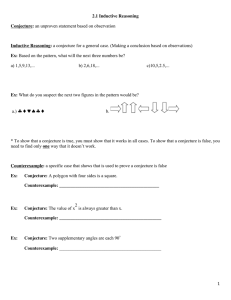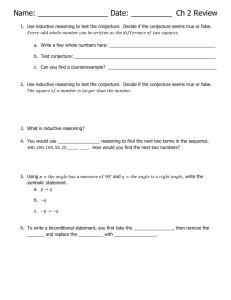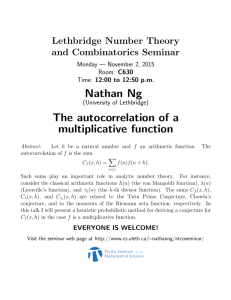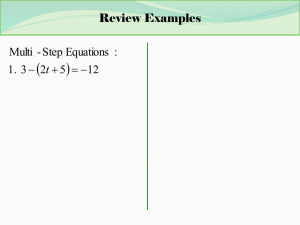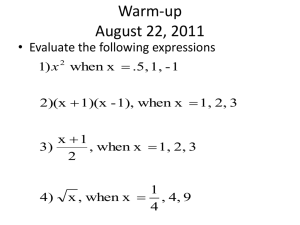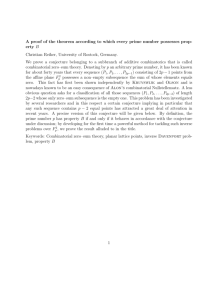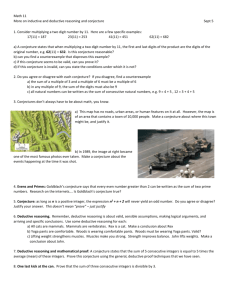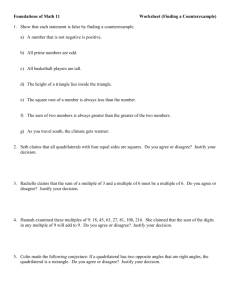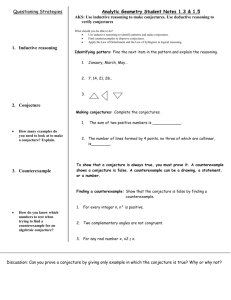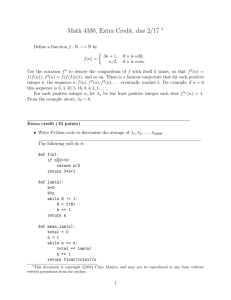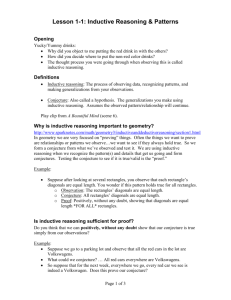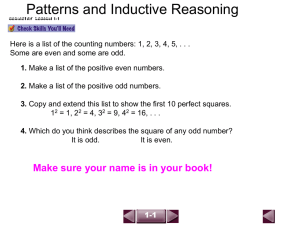Ex 1 - Village Christian School
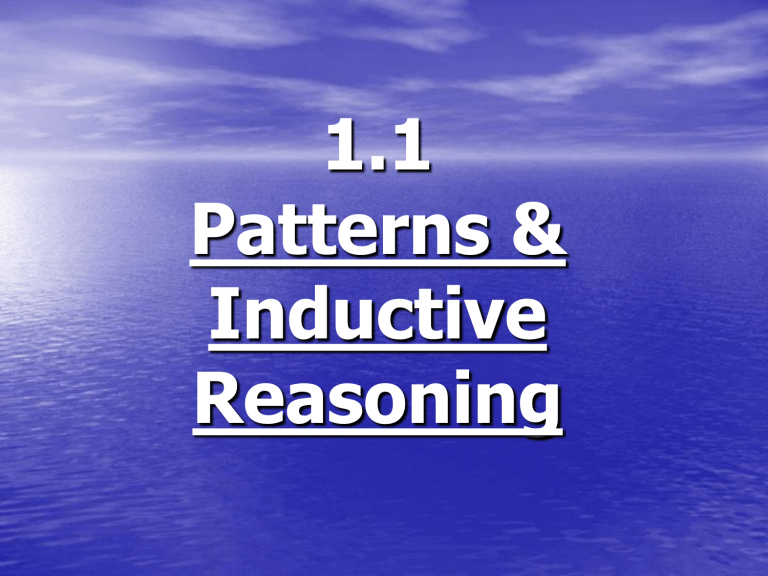
1.1
Patterns &
Inductive
Reasoning
Ex 1: Find the next two terms.
What is the pattern?
1. 5, 10, 20, 40, __, ___
Ex 1: Find the next two terms.
What is the pattern?
1. 5, 10, 20, 40, 80 , 160
Ex 1: Find the next two terms.
What is the pattern?
2. 3, 33, 333, 3333, ____,
_____
Ex 1: Find the next two terms.
What is the pattern?
2. 3, 33, 333, 3333, 33333 ,
333333
Ex 1: Find the next two terms.
What is the pattern?
3. 1, -1, 2, -2, 3, __, __
Ex 1: Find the next two terms.
What is the pattern?
3. 1, -1, 2, -2, 3, -3 , 4_
Ex 1: Find the next two terms.
What is the pattern?
4. O, T, T, F, F, S, S, E, __,
__
Ex 1: Find the next two terms.
What is the pattern?
4. O, T, T, F, F, S, S, E, N_ ,
T_
Draw the next figure:
5.
6.
Draw the next figure:
5.
6.
Inductive Reasoning
Reasoning based on patterns you observe
Conjecture
A conclusion you reach using inductive reasoning
We find the last picture using inductive reasoning
5.
A conjecture would be that the number of pieces in each pie is even
Ex 2A
Make a conjecture about the sum of the first thirty odd
Integers.
Ex 2B
Make a conjecture about the sum of the first 100 odd
Integers.
Counterexample
An example that proves a conjecture is False.
Give a counter example to prove each conjecture is false
Conjecture: Everyone in the room is wearing a red VCS polo
Counter example:
Conjecture: All prime numbers are odd
Counter example:
Conjecture: The quotient of two proper fractions is a proper fraction.
Counter example:
Homework
1.1 Pg 6 (19-21, 23, 25-28,
31-37, 43, 45, 50, 52, 60-
70) GP
Challenge: 54
